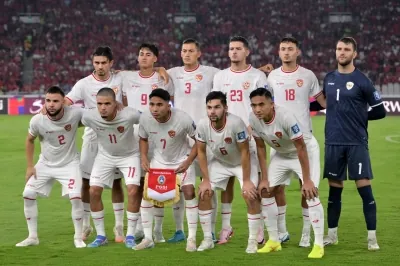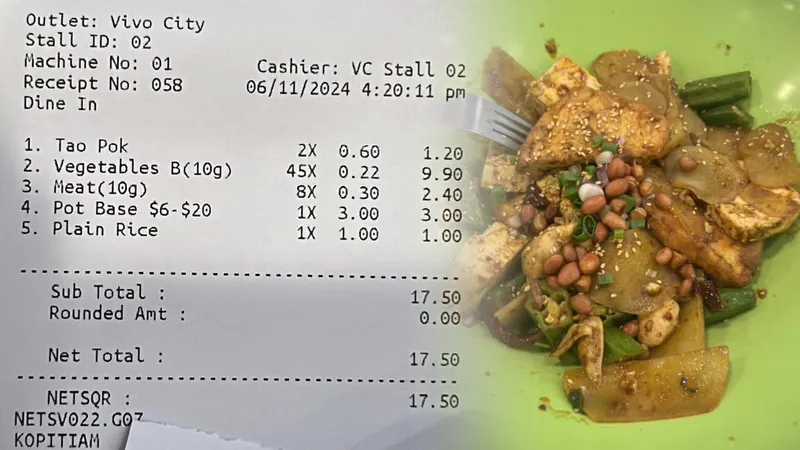
Indonesia's World Cup Aspirations Revived as Dutch-Born Stars Take the Field
2024-11-13
Author: Rajesh
Indonesia's World Cup Aspirations Revived
JAKARTA, Nov 13 — Indonesia's dream to return to the FIFA World Cup has been reignited as they strive for qualification for the 2026 tournament set to be held in North America. The nation's footballing history is bittersweet, having made their only appearance in the World Cup back in 1938 when they were under Dutch colonial rule, suffering a 6-0 defeat in their only match in France. Now, more than eight decades later, the football-obsessed archipelago is hoping the infusion of Netherlands-born players can turn their fortunes around.
Currently, Indonesia is in the critical third round of the Asian qualifying tournament. Remarkably, recent squads have included as many as ten players born in the Netherlands, thanks to the Football Association of Indonesia's aggressive recruitment of talent from their diaspora in the country’s former colonial power. Arya Sinulingga, a member of the football governing body, stated, “We have our choice to look for quality players... FIFA provides that space, and from our law, it is also possible, so why not?”
As the Indonesian team prepares for a high-stakes match against Japan, anticipated to be attended by 78,000 fans in Jakarta, they find themselves in a challenging fifth place in their qualifying group, with the top two teams advancing to the World Cup, and those in third and fourth moving on to further qualification rounds.
Naturalization Strategy in Indonesian Football
The naturalization of players is not unique to Indonesia, but the scale of it stands out. In a recent match against China, nine of the eleven starters were Dutch-born, showcasing a distinct strategy aimed at enhancing the team's potential. Japan's coach, Hajime Moriyasu, commended Indonesia's current squad under South Korean coach Shin Tae-yong, noting that they are “different, stronger,” and have valuable experience now that they feature naturalized players who play primarily in European leagues.
Since the COVID-19 pandemic, Indonesia has attracted talent through a naturalization policy that has seen 15 players make the switch, with the stipulation that they relinquish their original passports, as Indonesia does not recognize dual citizenship. Among the newcomers are Justin Hubner, part of the reserve squad for Premier League's Wolverhampton, and Kevin Diks, who has represented the Netherlands at youth level and currently plays for FC Copenhagen.
Challenges in Indonesian Football Development
However, despite the surge in talent and passion for football, Indonesia has struggled with infrastructure and financial investment in grassroots football. The nation has faced challenges including high levels of mismanagement and incidents of violence, such as the tragic stadium stampede in 2022 that resulted in over 130 fatalities. This has led to what some consider a “quick fix” approach to developing a competitive team.
Aun Rahman from Indonesia's Box2box football podcast highlighted the excitement surrounding the team, drawing comparisons to the K-pop phenomenon. The influx of Dutch players has rapidly increased their social media following. With ticket sales for home matches generating significant revenue, football has captured the hearts of many. The chairman of the football association, Erick Thohir, noted that sell-out crowds could bring in up to 20 billion rupiah (about $1.27 million) per game.
Looking Towards the Future
As Indonesia moves forward in their World Cup journey, with a much-anticipated match against Saudi Arabia on the horizon, there is a palpable sense of optimism among fans and players alike. The revival of national pride in football serves as a reminder of the country’s vibrant football culture—a culture that many believe is on the verge of international recognition once more. Could this be the year Indonesia joins the world stage again? Fans certainly hope so!




 Brasil (PT)
Brasil (PT)
 Canada (EN)
Canada (EN)
 Chile (ES)
Chile (ES)
 España (ES)
España (ES)
 France (FR)
France (FR)
 Hong Kong (EN)
Hong Kong (EN)
 Italia (IT)
Italia (IT)
 日本 (JA)
日本 (JA)
 Magyarország (HU)
Magyarország (HU)
 Norge (NO)
Norge (NO)
 Polska (PL)
Polska (PL)
 Schweiz (DE)
Schweiz (DE)
 Singapore (EN)
Singapore (EN)
 Sverige (SV)
Sverige (SV)
 Suomi (FI)
Suomi (FI)
 Türkiye (TR)
Türkiye (TR)